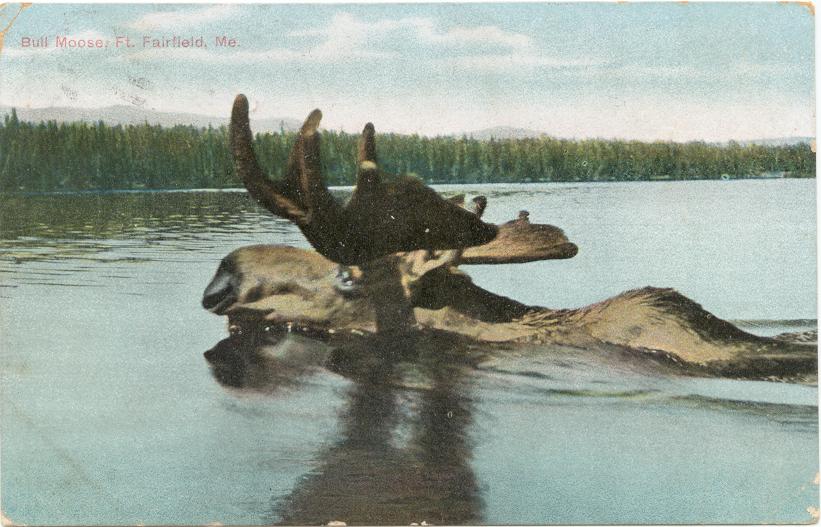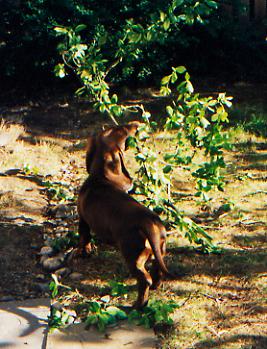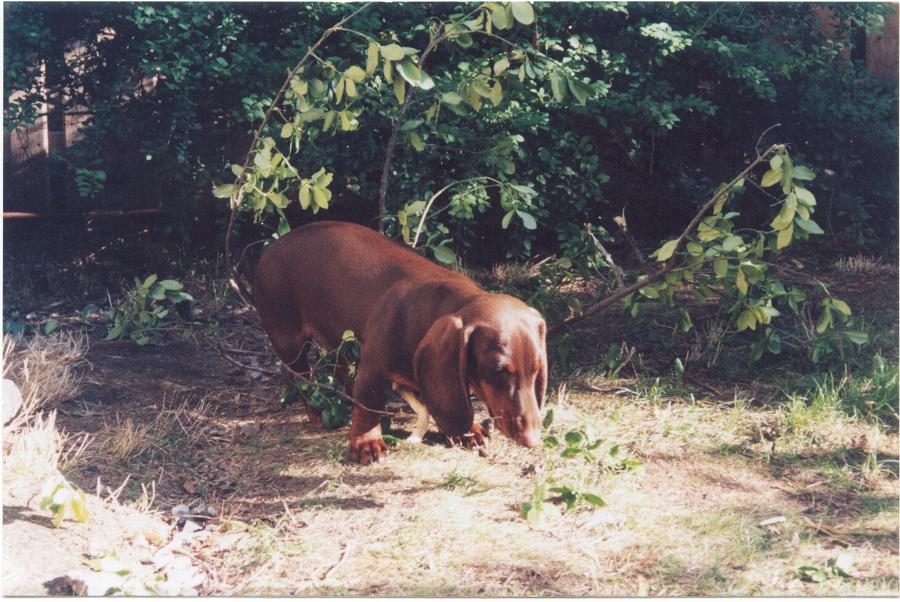History 247
The Travelers' Tales: Instructions for writing the short essays
During the first half of the course, students will write two short (3-4 pages) papers on two of three assigned “traveler’s tales”—primary documents written by travelers to Maine in the seventeenth, late eighteenth, and mid-nineteenth centuries. For each paper, you should present a focused historical discussion of an aspect of the "environmental" conditions and/or the prospects and development of communities in Maine as these were understood, described, and assessed by Christopher Levett in 1623-4, by Timothy Dwight in 1796, 1797, and 1807, and by Henry David Thoreau in 1846, 1853, and 1857.
Although the assignments differ in some ways from a critical analysis of a primary document, students may find that a critical-analysis perspective will help them sharpen their focus on the author’s rendition (what the author wrote), method (how the author described and assessed the land and peoples), perspective (the conceptual framework and perspective that shaped the author’s “vision” and account), and purpose (what the author hoped to accomplish by writing the text).
As you read and consider the three texts, you might also keep in mind the cautions that Laurel Thatcher Ulrich offers about reading historical sources and exploring the past:
- “The value of any activity is determined by its meaning to the participant, not to the observer.” As historians, we are among the observers about whom she speaks.
- “In Elizabeth’s story a romanticist will certainly find the dark secret of the Emerson family and a psychologist the developmental pattern which will explain the heroism of her sister Hannah. A historian, on the other hand, can simply remind them both that early New Englanders would not have seen it that way at all.”
Laurel Thatcher Ulrich, Good Wives: Image and Reality in the Lives of Women in Northern New England, 1650-1850 (1982), 42, 201.
Guidelines for writing a critical analysis of a primary document
A brief guide to correction marks
Christopher Levett’s Voyage
- Roger Howell, ed., Maine in the Age of Discovery: Christopher Levett’s Voyage, 1623-24 (Maine Historical Society, 1988), 7-68
For this short essay (3 pages), you are not expected to have much background in the early history and ecology of Maine, but you do know something about thinking historically and thinking environmentally. Try to gain an understanding of Levett’s “observations” from his voyage to southern and midcoast Maine in 1623-24 as he presented these in his account for the Council for New England. In your reading, consider Levett’s perspective from the historical perspective of his era and culture, as he understood those, rather than comparing his perspective to our present-day perspectives about the environment, community, and Maine. You might begin your examination with one or more of these questions.
- How did Levett envision and describe the environment, which was indeed occupied by Native Americans but “unimproved” according to European standards? What words and concepts did he use to describe what he saw? What do those words and concepts suggest about his perspective, values, and concerns?
- How did Levett describe the “potential” of the northern New England environment? Why?
- What concerns about the process of settlement and cultivation did he address in his report? Why?
This is a short essay: choose one section of his report, or an issue or concern that Levett addressed in a section of his report. Make sure that you keep your focus squarely on Levett's perspective (how he understood and wrote about what he observed, and what he concluded) as you discuss his observations. State a thesis about Levett's purpose in that section or about that issue and how he presented it, and support your argument with evidence (quotations) from Levett’s text. As you think about your essay, you can use some of the secondary sources that we have read thus far to help you ask questions about the way that Levett crafted his account account, and about what he described and the assessments that he made, but keep the focus of your essay squarely on Levett’s account--what he wrote--rather than on what he did not see, consider, or discuss.
Timothy Dwight’s Travels:
- Timothy Dwight, Travels in New England and New York (1821-22; republished Cambridge, Belknap Press of Harvard University Press, 1969): selections from “Journey to Berwick (1796),” Vol. I, 102, 301-310; selections from “Journey to the White Mountains (1797, [1807]),” Vol. II, 30, 107-169.
For this short essay, you now have a solid foundation for reading and analyzing Timothy Dwight’s record of his travels in Maine in the early Republic (originally published in 1821-1822 as a book in four volumes).
Timothy Dwight was a scholar (the president of Yale College) who, for reasons of health, “determined to devoted the vacations, particularly that in the autumn, which includes six weeks, to a regular course of traveling.” He explained that, prior to commencing his first journey, in September 1796, “...it occurred to me that a description of such interesting things as I might meet with in my excursions would probably furnish amusement to my family. I therefore put a notebook into my pocket with an intention to set down in it whatever should suit my inclination. The following September, when my journey lay along the Connecticut River and thence through the Notch of the White Mountains to Portland, I enlarged my scheme and determined to keep a regular journal. Some incidental circumstances at the same time excited in my mind a wish to know the manner in which New England appeared, or to my own eye would have appeared , eighty or a hundred years before. The wish was found to be fruitless, and it was soon perceived that information concerning this subject was chiefly unattainable. A country changing as rapidly as New England must, if truly exhibited, be described in a manner resembling that in which a painter would depict a cloud. The form and colors of the moment must be seized, or the picture will be erroneous. As it was naturally presumed by me that some of those who will live eighty or a hundred years hence must have feelings similar to my own, I resolved to furnish, so as far as should be in my power, means of enabling them to know what was the appearance of their country during the period occupied by my journeys.” (Timothy Dwight, Travels (1969), vol. I, 1.)
- In that selection from his preface, he explained his reasons for keeping a journal and what he hoped to convey and accomplish. What concepts framed or focused Dwight’s description of “the appearance of [the] country” that he visited on his excursions? How did those assumptions shape his descriptions of both the countryside and the settlements and towns that he visited?
- What measures, standards or values did he apply when he assessed the changes in the land that had been made by the inhabitants? What did he praise about the land and its inhabitants? What did he criticize? Why?
- What aspects of both the environs and the settlements and towns did he deem of little interest to his readers? Why?
Once again, this is a short (3 page) essay. Pick a section where Dwight addresses a topic, theme, issue, concern, etc., that intrigues you. This should give you a manageable focus for examining Dwight’s descriptions and assessments of Maine’s landscape and inhabitants in the early republic. Present an argument/analysis about Dwight's intention and purpose in that section, and cite specific examples from his text to support your analysis of what he wrote and why. Once again, keep your focus squarely on Dwight’s perspective, how he presented his observations, the context in which he presented them, and why he included those descriptons, observations, and commentaries in his account.
Henry David Thoreau’s Excursions:
- Henry David Thoreau, The Maine Woods (1864), Introduction by Edward Hoagland (1988)
Further reading:
- Robert Kuhn McGregor, “Deriving a Biocentric History: Evidence from the Journal of Henry David Thoreau,” Environmental Review, 12,2 (1988), 117-124.
By this point in the semester, we have begun to develop a complex understanding of the environmental history of Maine (and northern New England). For this 3-page essay, discuss the third traveler, Henry David Thoreau, who, in contrast to the two previous travelers, presented his account of his three journeys into the Maine woods through a more focused environmental lens.
As you consider and analyze his account of the Maine Woods, make sure that you think historically as well as environmentally about his text. By thinking historically, make sure that you do not judge him by twenty-first century standards or knowledge. Your task is to try to understand his conceptual framework and perspective and to determine how that shaped what he addressed in his account. Keep your focus on what he attempted to convey in his text, rather than what we might learn about the Maine woods from his account. In thinking environmentally, be careful about predicting his role in later environmental movements. Instead, you might try to determine the extent to which he articulated environmental values, and concerns, and indeed whether he saw his views as constituting an environmental perspective.
Once again, this is a short, 3-4 page essay. Make sure that you pick a sufficiently focused topic, and offer a clear thesis about that topic; in that way, you should be able to present a compelling discussion that supports your argument.
Maine wildlife

Bull Moose, Ft. Fairfield, Me. (c. 1908)
- As they had some new postals at the Fort thought you would like one. Saw May and Lena last night. Mrs. Bearisto is very sick. Ethel


Mocha Moose, Brunswick, ME (1998)
North Carolina ultra-domesticated animal life

Jamie, Durham, NC (1996)
